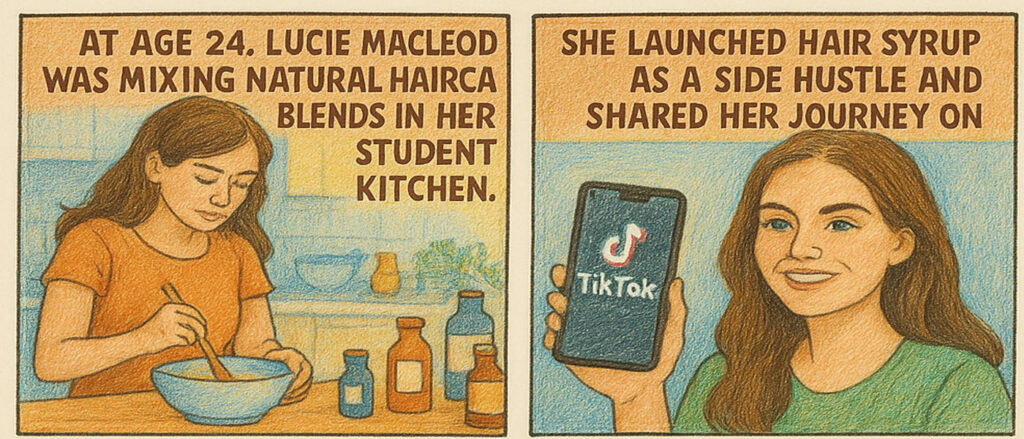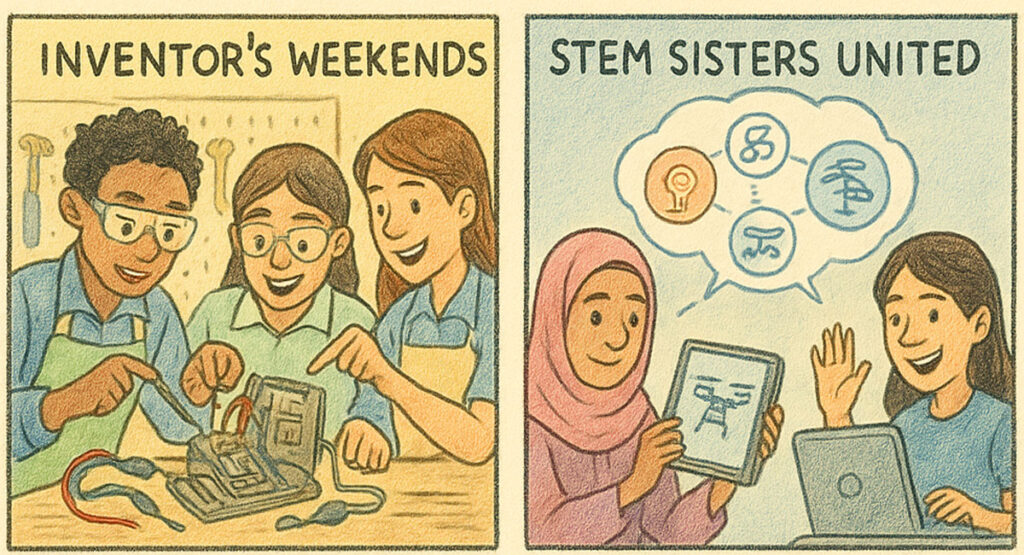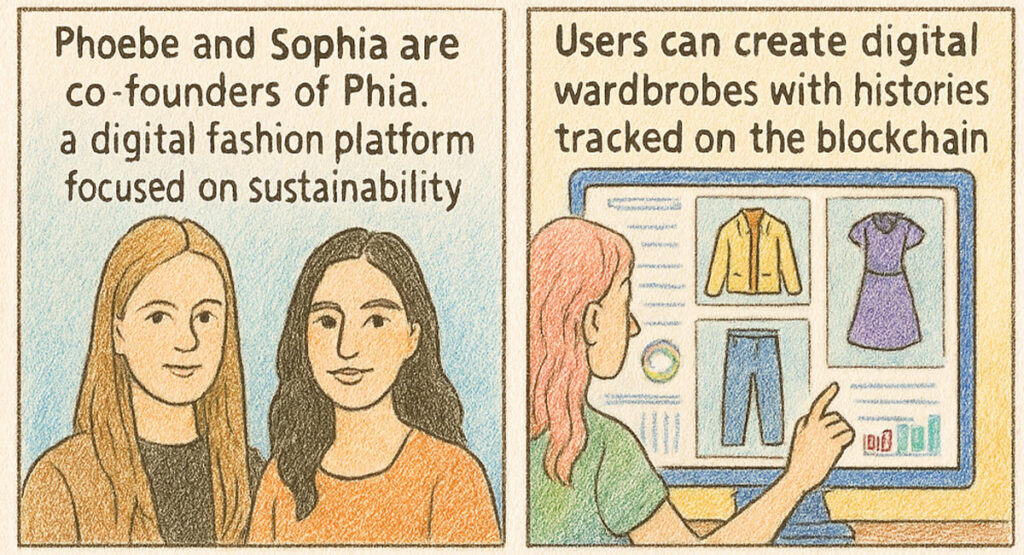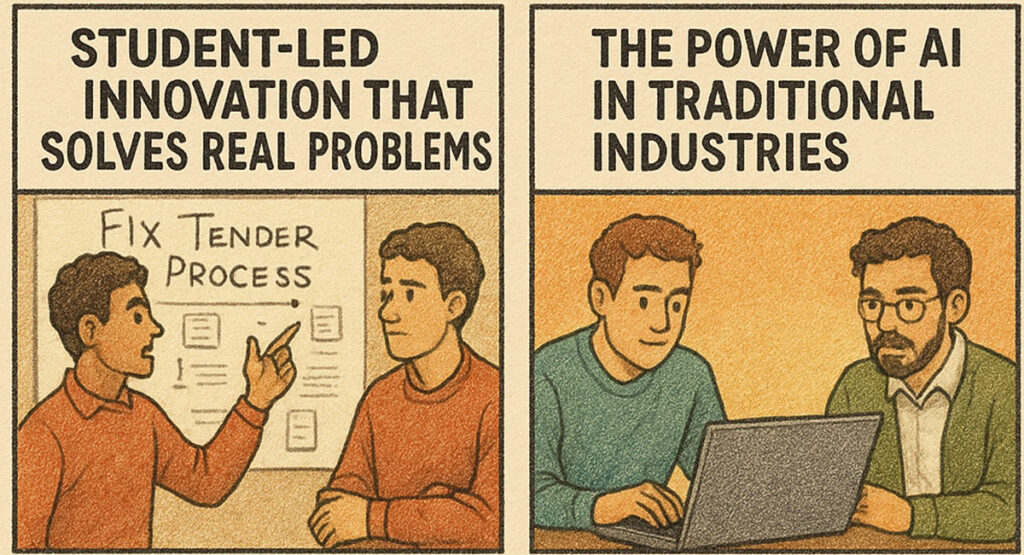🌍 A Vision Beyond Boundaries
Born in Nigeria with an innate hunger to reshape the future, Temitope Okeseeyin didn’t wait for permission to lead — he created his own path. Raised in an environment where traditional career routes were the only visible options, Temitope always believed there had to be more — more opportunities, more innovation, more doors to unlock. He imagined a world where young Africans could thrive in the digital economy, not just survive in a broken system.
From early on, his mind worked differently — seeing opportunities in problems, innovation in chaos, and potential in people others overlooked. That very belief became the cornerstone of the two transformative ventures he would later build: Outnovately Africa, a Human Resources Tech revolution, and University of Freelancing, a digital learning sanctuary.
💡 Outnovately Africa: Redefining HR in Africa
Temitope’s first brainchild, Outnovately Africa, was not just another HR consultancy or recruitment firm. It was a movement. Designed as an HR-tech startup, it tackled the two most pressing challenges in African employment:
- Talent discovery and
- Workforce innovation.
While most HR firms focused on filling vacancies, Temitope’s vision was deeper — he wanted to equip, empower, and evolve talent. Outnovately built systems using AI and no-code tools to identify latent talent, especially in underserved communities, and matched them with future-ready roles.
Its AI-powered assessments, virtual skill clinics, and talent curation systems offered companies predictive hiring solutions while offering candidates transformational growth.
What set Outnovately apart wasn’t just its tools — it was its soul. Every placement, every training, every initiative was fueled by a belief: “Africa’s best resource is its people.”
🎓 The University of Freelancing: Creating 100,000+ Global Citizens
Temitope didn’t stop with HR. He asked himself, “What if every young African could become financially independent by simply learning the right skills?”
This question birthed his second venture: University of Freelancing — an EdTech platform that exploded into one of Africa’s most influential digital learning communities.
Here, the curriculum was not built by professors but by global practitioners. Courses weren’t abstract theories but battle-tested strategies for the real world.
Some of the major verticals offered:
- No-Code Development: Empowering creators to build without being programmers.
- AI for Creators: Teaching practical AI applications for freelancers and entrepreneurs.
- Freelancing 360: From portfolio to payment, the complete success roadmap.
- Global Gig Market Bootcamps: Training for Upwork, Fiverr, Toptal, and more.
Through weekly mentorship sessions, challenge-based learning, and real-world capstones, students didn’t just learn — they transformed.
To date, over 100,000 learners from 15+ countries have been impacted. Many of them are now earning in dollars, building global careers, and supporting their families — all from their laptops.
🧠 Leadership Style: From Hustler to Visionary
Temitope wasn’t born into wealth or privilege. He started with a second-hand laptop and a borrowed internet connection. But what he lacked in resources, he made up in relentless learning. He devoured books, took online courses, shadowed global thought leaders, and stayed up countless nights tinkering with ideas.
His leadership style is a blend of:
- Design Thinking: Empathy before strategy.
- Servant Leadership: Leading by lifting others.
- Digital Foresight: Always ten steps ahead of the tech curve.
He believes in building “agile teams with empathetic minds.” Every person hired, mentored, or promoted under his leadership carries that spark — not just to execute, but to innovate.
📈 Business Model & Impact
Outnovately Africa
- Revenue Model: B2B SaaS subscriptions, HR automation tools, and talent analytics services.
- Clients: Over 200+ businesses across Nigeria, Ghana, Kenya, and South Africa.
- Impact: Reduced average hiring time by 62%, improved employee retention in SMEs by 40%.
University of Freelancing
- Revenue Model: Subscription learning, one-time bootcamp enrollments, corporate upskilling packages.
- Learner Impact: Over $5M in earnings collectively reported by freelancers trained through the platform.
- Innovation: Created the first “No-Code Africa Challenge” — a continent-wide hackathon using only no-code tools.
✨ Words That Inspire His Mission
Temitope is often heard saying:
“The world will not wait for Africa to catch up. We must leap, not walk.”
“You don’t need a degree to thrive — just discipline and direction.”
“If we teach one youth to freelance, we free a family from financial pain.”
🏆 Recognitions & Legacy
While he’s not driven by awards, Temitope’s work has not gone unnoticed. He’s been recognized by multiple African innovation forums, featured in youth entrepreneurship summits, and invited to advise EdTech coalitions across the continent.
But if you ask him his proudest moment? He won’t mention a trophy or title.
He’ll talk about the young woman from Sokoto who became a top-rated Upwork designer. Or the boy from Ibadan who built a no-code app that got funded. Or the mother of three from Port Harcourt now earning $3,000/month freelancing from home.
That’s Temitope’s true legacy — people transformed.
🚀 What’s Next?
Temitope dreams of:
- Expanding University of Freelancing into a pan-African digital university.
- Building Outnovately Labs, an incubator for no-code freelancers to become startup founders.
- Launching an AI-powered freelancer hiring platform tailored for African talent.
- Partnering with governments to embed freelancing and AI skills into national curriculums.
He doesn’t just see Africa’s potential — he activates it.
🔥 1. From Unemployment to Empowerment
Temitope understood firsthand the pain of joblessness in Africa — not just financial, but emotional. His mission was never just about jobs. It was about dignity, confidence, and freedom.
Through his platforms, he’s flipped the narrative: from waiting for jobs to creating opportunities.
Quote:
“We don’t chase jobs anymore — we build value, and jobs come looking for us.”
🔎 2. Discovering Hidden Geniuses in Rural Africa
Many of Temitope’s top-performing students didn’t come from capital cities or elite schools. They came from remote villages, often learning by torchlight or borrowed devices.
He invested in rural tech evangelism, dispatching mobile learning vans and offline bootcamp kits. His goal: no African left behind.
Story:
A 17-year-old in Osun state with zero tech background built a sales automation chatbot using no-code tools after a 6-week mentorship with University of Freelancing.
🌐 3. The Digital Wakanda Dream
Temitope coined a phrase: “Digital Wakanda.” A future where Africa is no longer just a consumer but a producer of global tech talent, platforms, and IP.
He envisioned African freelancers and no-code creators not just working in global platforms — but building their own.
This inspired an internal fellowship program where graduates of the University of Freelancing now get incubated to become startup founders, not just service providers.
📱 4. The Smartphone as a School
Temitope believes education must go where the people are. And for most Africans, that’s not a classroom — it’s a mobile phone.
He pioneered mobile-first learning: bite-sized, high-impact, daily microcourses — some as short as 5 minutes — on freelancing, AI tools, and entrepreneurship.
Mantra:
“If you can scroll, you can learn. If you can learn, you can earn.”
🤖 5. Teaching AI in the Language of the People
Most African tech training happens in academic English or foreign lingo. Temitope flipped the model by launching AI and No-Code in local languages — including Yoruba, Igbo, and Hausa.
This cultural-first approach made learning accessible, relatable, and sticky. It also revived pride in indigenous knowledge.
Result:
Completion rates on local-language courses rose by 230%.
🛠 6. Tools Before Rules: Africa’s DIY Culture
Temitope champions “tools before rules” — meaning instead of overwhelming learners with theory, give them the tools to build now.
He believes in learning by doing, which is why students at University of Freelancing start earning within weeks, not years.
Real-World Example:
Students build:
- Landing pages for NGOs,
- AI-powered CV bots,
- Digital stores,
- Payment integration solutions — all without writing a line of code.
🧭 7. From Freelancers to Nation Builders
Temitope sees freelancers as more than gig workers. To him, they are the new digital diplomats of Africa — representing their countries on global platforms with skill and integrity.
He often says:
“Every invoice paid to a Nigerian freelancer is a vote of confidence in our future.”
To instill this, he embedded a Code of Digital Citizenship in his curriculum — covering ethics, reliability, cultural representation, and sustainability.
📣 8. Voices of the Next Generation
Temitope started a podcast and docu-series called “Unboxed Talents”, where students from his program tell their journey from zero to global. These raw, emotional stories have sparked thousands of new enrollments.
One of the most viral episodes?
A visually impaired woman who became a certified no-code app builder, now mentoring others with disabilities in tech.
💬 9. Digital Mentorship Circles
He reimagined mentorship as peer-driven learning. Instead of one-on-one sessions, he launched “Mentorship Circles” — small pods of learners led by graduates. This created a multiplier effect, producing over 2,000 volunteer mentors within a year.
Tagline:
“We rise by multiplying.”
🏅 10. DreamBuilder Scholarships
Temitope set aside a percentage of all course revenue to fund full-ride scholarships for underprivileged learners — especially single mothers, refugees, and street youth.
One of the beneficiaries is now building a freelance design agency employing five others.
“Don’t Wait to Be Funded — Start With Fire”
Temitope often shares this as his most important advice to African entrepreneurs:
“Don’t wait to be discovered. Don’t wait for venture capital. Don’t wait for someone to tell you it’s okay. Start now. Start messy. Start loud. Just start with fire.”




















